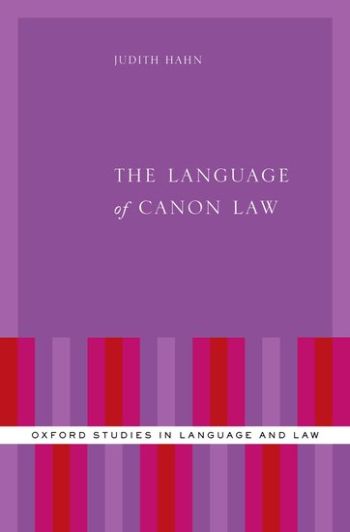
The Roman Catholic Church has been criticized for many reasons, including its legalism. The growing aversion of church members to the law and the church hierarchy's juridified interpretation of Christianity is fueled by the language of ecclesiastical law (medieval legal Latin), which excludes most of the faithful from understanding and participating in debates on reforming the church's legal structure.
In The Language of Canon Law, Judith Hahn explores the legal order of the Roman Catholic Church to better understand how the Roman Catholic Church communicates as a legal institution. She argues that the language of canon law reveals the political ideology of the church hierarchy, and she takes up the tools of language and law scholarship to examine and challenge that language. Examining the function of canon law language in ecclesiastical communications, she studies the character of canonical language, the grammar and terminology of canon law, and how canon law language makes use of linguistic tricks and techniques to create its typical sound. Further, Hahn discusses the comprehension difficulties that arise out of ambiguities in the law, out of transfer problems between legal and common language, and out of canon law's confusing mix of legal, doctrinal, and moral norms.
An important contribution to law, language, theology, and sociology alike, this book proposes a rethinking of whether Latin is the appropriate language of a global and cross-cultural legal order like canon law, suggesting that the global church instead seek to develop a multi-language practice.